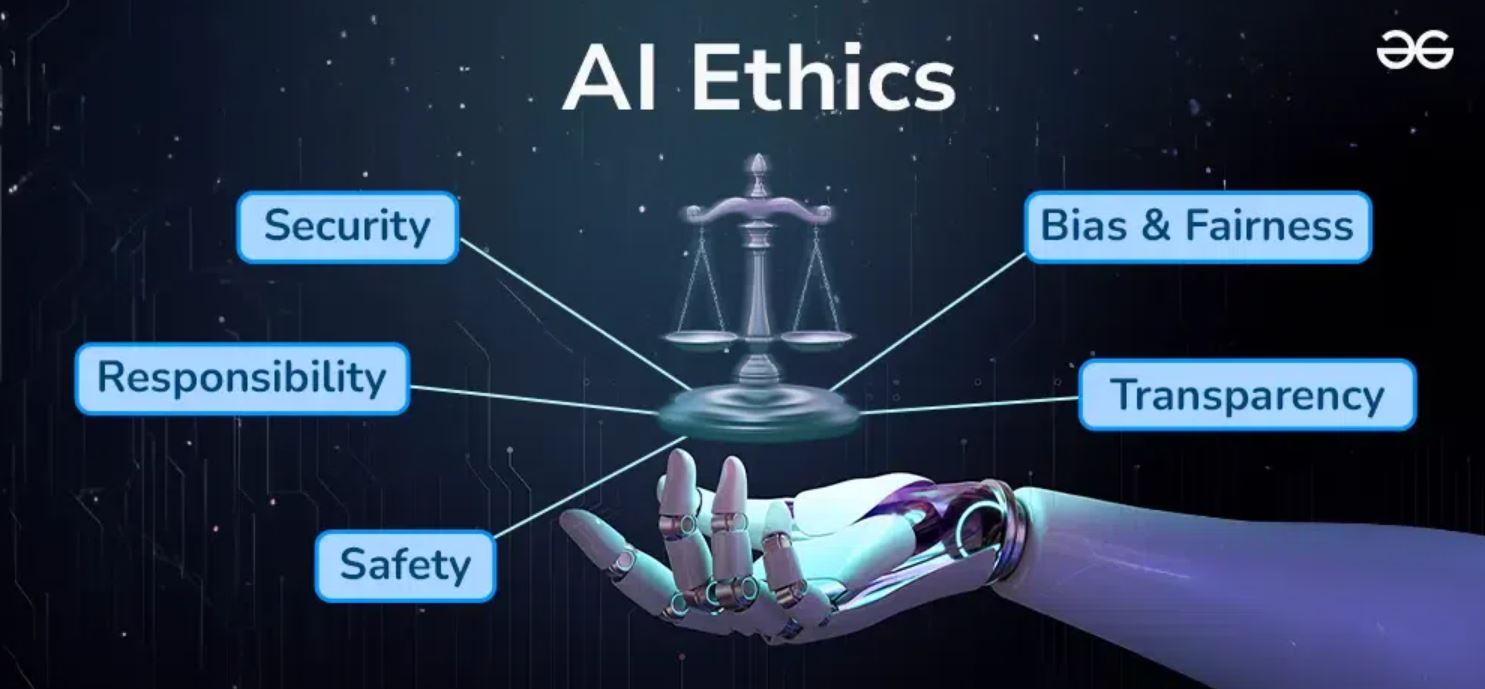 Artificial Intelligence (AI) is changing the world around us at an astounding pace, from the way we search for information to how we interact with our devices and even how we travel. With AI becoming such a big part of our daily lives, we’re also facing some important ethical questions, especially when it comes to safety, fairness, and how transparent these systems are.
Artificial Intelligence (AI) is changing the world around us at an astounding pace, from the way we search for information to how we interact with our devices and even how we travel. With AI becoming such a big part of our daily lives, we’re also facing some important ethical questions, especially when it comes to safety, fairness, and how transparent these systems are.
Moral Responsibility in AI
One of the big questions we need to tackle is accountability. When something goes wrong with AI—like the unfortunate 2018 incident where an autonomous Uber vehicle caused a pedestrian’s death—who’s to blame? Is it the company that made it, the person who programmed it, or the owner? Right now, there aren’t clear legal guidelines on this, highlighting the urgent need for solid regulations to protect everyone.
Addressing Bias in AI Systems
AI systems can sometimes reflect the biases found in the data they’re trained on. Take Amazon’s AI recruitment tool from 2018, which ended up being biased against women because it learned from past hiring data that favored men. To tackle these biases, it’s essential to use diverse training datasets, apply techniques to reduce bias, and have independent evaluations of these models.
Privacy and Surveillance Concerns
AI’s ability to collect and analyze data raises serious privacy issues. Governments and companies can use these systems to track our activities and preferences, often without us even knowing. For instance, Amnesty International has raised concerns about China’s use of facial recognition technology for surveillance, which poses a threat to personal freedoms. To protect privacy, we need regulations that limit AI surveillance, ensure transparency in how data is used, and educate the public on data protection.
The Impact of Automation on Employment
AI is automating more tasks that humans used to do, and this is having a big impact on jobs. The World Economic Forum estimates that by 2025, automation could displace 85 million jobs, but it could also create 97 million new roles in different sectors. To navigate this shift, it’s crucial to invest in retraining workers, develop policies to support transitions, and encourage collaboration between humans and AI.
AI and the Spread of Misinformation
AI-generated content, like text, images, and videos, has made it easier to spread misinformation, including fake news and deepfakes. During the 2020 U.S. elections, deepfakes were used to sway public opinion. Combating this requires regulating AI’s role in digital content creation, developing AI tools to detect fake content, and raising awareness about verifying sources.
Towards Ethical and Responsible AI
For AI to truly benefit us, we need to focus on ethical and responsible development. Organizations like the European Union are working on regulations to ensure AI is transparent and safe, and UNESCO has introduced a global ethical framework. Major tech companies like Google and Microsoft are also creating their own responsible AI principles.
In conclusion, while AI has the potential to greatly improve our lives, without a strong ethical framework, it could also worsen inequalities and infringe on our rights. The challenge is to balance innovation with responsibility, ensuring AI is a force for good.








